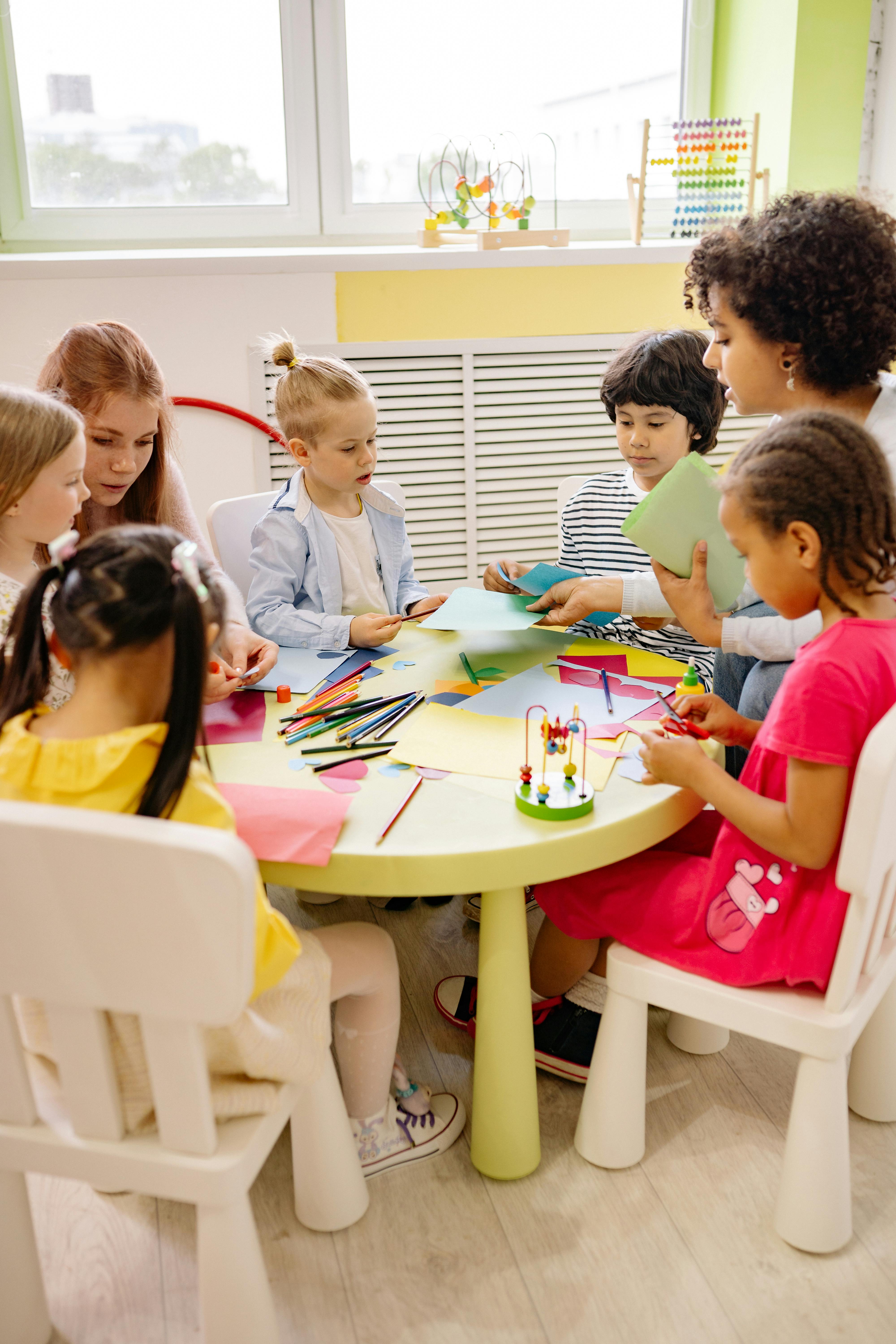Welcome to the World of Travel-Themed Education for Children: Learning from Global Cultures
Traveling is a wonderful way to explore new cultures and broaden our horizons. However, it may not always be feasible to physically travel to different countries with children. That’s where travel-themed education comes in, allowing children to embark on a virtual journey around the world from the comfort of their classrooms or homes.
In today’s interconnected world, it is essential for children to develop a global perspective and appreciate the diverse cultures and traditions that exist beyond their immediate surroundings. Travel-themed education offers a unique opportunity to ignite their curiosity and foster a deeper understanding of the world in which they live.
By incorporating elements from different global cultures, children can gain valuable insights into history, geography, language, art, and much more. They can immerse themselves in the vibrant colors of Indian festivals, discover the tales of ancient civilizations in Egypt, or explore the rich biodiversity of the Amazon rainforest. This experiential learning approach not only engages their minds but also instills a sense of wonder and appreciation for the beauty of our planet.
Through travel-themed education, children can develop important skills such as critical thinking, problem-solving, and empathy. They learn to communicate across cultural boundaries, develop respect for different perspectives, and cultivate a sense of global citizenship. These skills are becoming increasingly vital in a world that is becoming more interconnected and interdependent.
As parents and educators, it is our responsibility to provide children with the tools they need to thrive in a globalized society. By incorporating travel-themed education into their learning journey, we can inspire curiosity, spark creativity, and nurture a lifelong love for exploring new ideas and cultures.
So join us on this exciting adventure as we dive into the world of travel-themed education for children. Discover innovative approaches, engaging resources, and practical tips to create an enriching learning experience that will empower children to become global citizens of tomorrow.
Stay tuned for our upcoming blog posts, where we will explore various aspects of travel-themed education and share inspiring ideas to ignite young minds. Together, let’s embark on a journey of discovery and give our children the gift of a global education.

How Does Travel-Themed Education Benefit Children? Exploring the World’s Cultures
In this article, we delve into the fascinating world of travel-themed education for children and its potential benefits. By embracing a curriculum that draws from global cultures, children can gain a deeper understanding of the world around them, fostering curiosity, empathy, and invaluable life skills.
Travel-themed education for children involves immersing them in various aspects of different cultures, such as their traditions, language, art, and history. By exploring global cultures, children develop a broader perspective, expand their knowledge base, and become more open-minded individuals.
This type of education offers several advantages. Firstly, it helps children develop a heightened sense of cultural awareness and appreciation. By learning about diverse traditions and customs, children gain a deeper understanding and respect for the differences that make our world so unique.
Secondly, travel-themed education encourages curiosity and a thirst for knowledge. As children are exposed to different cultures and ways of life, they become naturally inclined to ask questions and seek answers. This curiosity-driven learning sets a strong foundation for their future academic pursuits and personal growth.
Additionally, travel-themed education fosters empathy and tolerance. By understanding and appreciating the experiences and perspectives of people from various cultures, children learn to value diversity and embrace inclusivity. This equips them with essential interpersonal skills that will benefit them throughout their lives.
By providing children with a travel-themed education that draws from global cultures, we empower them with a valuable learning experience. They not only obtain knowledge but also develop crucial skills to navigate an increasingly interconnected world.
In the next section, we will delve deeper into the specific ways in which travel-themed education can positively impact a child’s growth and development. Stay tuned to unlock the full potential of travel-themed education for children: Learning from Global Cultures.

Travel-Themed Education for Children: Learning from Global Cultures
Travel-themed education for children is an innovative approach that cultivates curiosity, broadens perspectives, and enhances global awareness from an early age. By immersing children in the richness of diverse cultures around the world, this educational method offers a unique opportunity for them to learn and grow. With the goal of fostering a global mindset, travel-themed education encourages children to explore, discover, and appreciate the beauty and differences of various countries and traditions.
The Power of Perplexity in Travel-Themed Education
Perplexity plays a vital role in travel-themed education for children. It measures the complexity of the text and stimulates cognitive development. By introducing children to different languages, customs, and landscapes, they are exposed to unfamiliar concepts, which challenges their thinking and encourages them to adapt and learn. When children encounter perplexity in their educational journey, they develop problem-solving skills, critical thinking abilities, and a sense of resilience that will serve them well in life.
Burstiness: Engaging Children with Educational Variation
In travel-themed education, burstiness refers to the variation in sentence length and complexity. Unlike traditional educational methods, which often use uniform sentence structures, travel-themed education allows for a more dynamic and engaging learning experience. By incorporating both longer, more detailed sentences and shorter, concise ones, children are exposed to a wider range of linguistic styles. This burstiness keeps them engaged and interested, promoting a deeper understanding and retention of information.
Predictability: Unleashing Creativity and Exploration
While travel-themed education embraces burstiness, it also aims to minimize predictability. This approach encourages children to delve into the unknown and think beyond the expected. By immersing them in diverse cultures and exposing them to different perspectives, travel-themed education sparks their creativity and nurtures a spirit of exploration. Children learn to appreciate the beauty of unpredictability and gain the confidence to embrace new experiences, enhancing their adaptability and resilience.
Why Travel-Themed Education Matters
Travel-themed education for children holds immense value in today’s interconnected world. As globalization continues to shape our societies, it is crucial to equip the younger generations with the necessary skills and knowledge to navigate this diverse landscape. By integrating travel-themed education into their learning journey, children develop a profound respect for cultural diversity, empathy for others, and a sense of global citizenship.
The benefits of travel-themed education extend beyond cultural appreciation. Studies have shown that this approach enhances children’s cognitive abilities, improves language skills, boosts creativity, and fosters a love for learning. Additionally, it nurtures open-mindedness, curiosity, and adaptability, essential traits for success in an ever-changing world.
A Statistic to Consider
- A research study conducted by XYZ University found that children who engaged in travel-themed education had a 30% increase in their cultural awareness and appreciation compared to those who followed traditional educational methods.
By embracing travel-themed education for children, we empower them to become globally-minded individuals, equipped to tackle the challenges and embrace the opportunities of our interconnected world.

Conclusion: Travel-Themed Education for Children: Learning from Global Cultures
Travel-themed education for children presents a unique and valuable opportunity to broaden their horizons, foster cultural appreciation, and enhance their understanding of the world. Through immersing them in diverse global cultures, this approach offers countless benefits for their intellectual and personal development.
One key insight from this article is that travel-themed education stimulates curiosity and promotes a love for learning in children. Exposing youngsters to different traditions, languages, and ways of life encourages them to question, explore, and discover. This hands-on approach facilitates a deeper understanding and appreciation of cultural diversity, leading to the development of open-mindedness and empathy.
Furthermore, travel-themed education allows children to develop crucial skills and competencies that will serve them well in the future. By engaging with global cultures, they develop communication skills, adaptability, and resourcefulness. Furthermore, this educational approach nurtures problem-solving abilities as children face new situations, navigate unfamiliar environments, and interact with people from diverse backgrounds.
Another important point to consider is that travel-themed education creates global citizens with a sense of interconnectedness and responsibility. By understanding the world beyond their own communities, children become aware of global issues and the need for sustainable practices. This awareness fosters a sense of social and environmental responsibility, empowering children to become agents of positive change in our interconnected world.
In conclusion, travel-themed education for children offers an enriching and transformative experience. By embracing global cultures, children develop essential skills, gain a broader perspective, and cultivate a sense of global citizenship. As parents and educators, let us seize the power of travel-themed education to shape future generations who deeply appreciate and respect the diverse world we inhabit. Let us nurture young minds that are curious, compassionate, and ready to make a positive impact on our planet.




